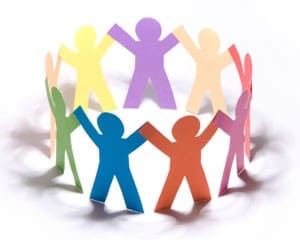
Polio survivors who now suffer from “Post Polio Syndrome” join the post-polio support groupmeeting at the Voorhees Senior Center at 501 Laurel Oak Road, third floor, elevator available.
The group meets the fourth Saturday of each month from March to November from 11 a.m. to 12:30 p.m.
The next meeting is April 25. For more information and directions call (856) 273–9704
Polio has affected many people in all walks of life, usually as children. Post Polio Syndrome is an unfortunate occurrence relating to about 30 percent of Polio survivors.
During the 1980s, doctors began to take note that some of their patients who had Polio 40 or 50 years prior were beginning to have difficulty with muscle power. As an example, where one leg or arm was affected, they now found that their other leg or arm was weakening. This is partially due to the fact that as survivors they were taught to develop and use their unaffected muscles to compensate for those that were no longer working. Many over compensated and worked hard to prove that they could do anything (within reason) to live a productive life. Organs are also muscle and can become affected with time.
Dr. Richard Bruno did extensive research and in his book, “The Polio Paradox”, he explained that instead of “use it or loose it”, post Polio survivors have to “conserve to preserve” in order to retain what strength they had left. Active exercise is not encouraged, but passive exercises, such as yoga and those in water, are found to be helpful.
About 25 years ago, Polio support groups were formed throughout the world to help and inform survivors. This local group, as the others, is comprised of men and women who are still as active as they can be despite their physical difficulties. It’s informative and playful. Most helpful is the Post Polio Health International newsletter that keeps the group informed with developments throughout the world.
There are many Polio survivors who don’t know about the help others can provide. It is estimated that there are approximately 30,000 Polio survivors in New Jersey alone. Many Doctors know nothing about Post Polio Syndrome and its survivors job to inform them so they, in turn, can better help their patients.









